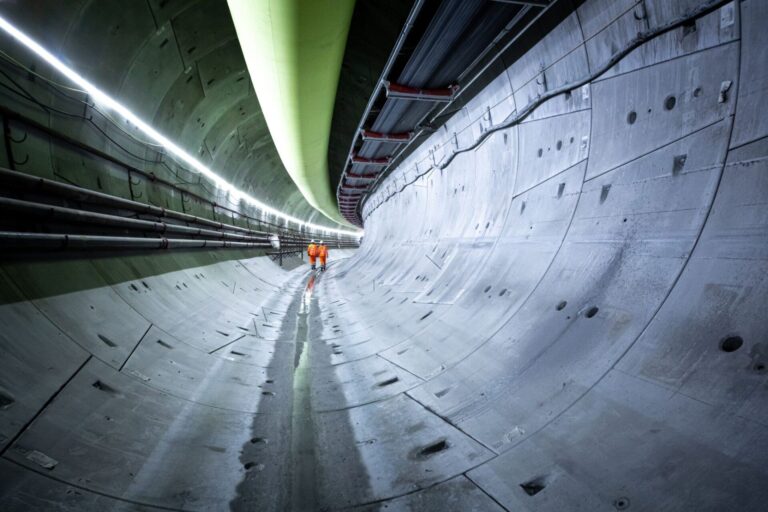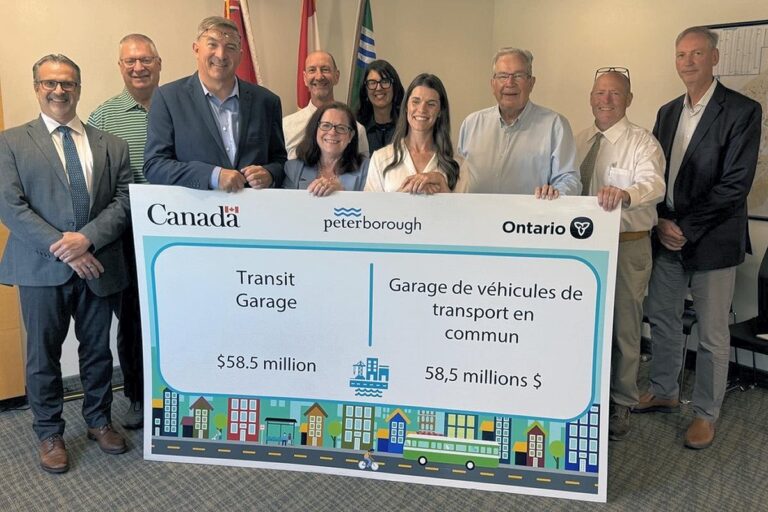While Ontario’s fall economic statement revealed that the projected deficit for this year has more than quadrupled to $5.6 billion, it also announced that the province is investing $3 billion for the creation of a new Ontario Infrastructure Bank.
Minister of Finance Peter Bethlenfalvy also announced that the province will remove the provincial portion of the HST on qualifying new purpose-built rental housing and launching what it calls a new “housing-enabling water systems fund.”
The Ontario Infrastructure Bank, a new arms-length, board-governed agency to enable public-sector pension plans and other trusted institutional investors to participate in large-scale infrastructure projects across the province will be focused on long-term care homes, affordable housing and infrastructure in the municipal, community, energy and transportation sectors.
The removal of the provincial portion of the HST would apply to new purpose-built rental housing such as apartment buildings, student housing and senior residences built specifically for long-term rental accommodation, that meet the criteria. The enhanced rebate would apply to qualifying projects that begin construction between September 14, 2023 and December 31, 2030, and complete construction by December 31, 2035.
For municipalities, the province plans to spend $200 million over three years into the fund that will be available for municipalities to apply to for the “repair, rehabilitation and expansion of core water, wastewater and stormwater projects that promote growth and enable housing development.”
“Today’s announcement of removing the provincial portion of the HST on purpose-built rental will make many rental construction projects, which have always been expensive and face tough economic circumstances, viable. That means more opportunity, choice and affordability in homes for residents across the province,” said Jason Burggraaf executive director, Greater Ottawa Home Builders’ Association.
The Residential and Civil Construction Alliance of Ontario (RCCAO) commended the government’s announcements.
“RCCAO welcomes the Government of Ontario’s continued focus on transformational transit and transportation infrastructure projects. The Bradford Bypass and Highway 413 are critical for the long-term competitiveness of our province and for the movement of goods and people in a rapidly growing hub of Ontario,” said Nadia Todorova, executive director of RCCAO.
“The critical infrastructure investments advanced in today’s Fall Economic Statement will provide thousands of high paying employment opportunities for our industry and help Ontario prosper by meeting its future infrastructure requirements.”
The Ontario Sewer and Watermain Construction Association (OSWCA) also applauded the Ford government for recognizing and taking quick action on addressing what the association calls “one of the most critical impediments impacting the housing supply chain: getting water, sewer, and stormwater infrastructure built.”
“It is clear the Ford government remains focused on building homes faster,” said Patrick McManus, Executive Director of the OSWCA. “The commitment to provide municipalities with $200 million to build housing enabling infrastructure will help to alleviate the financial burden they have been facing in recovering from the pandemic, while also trying to meet the demand for growth.”
The Residential Construction Council of Ontario (RESCON) said it is pleased that the provincial government remains focused on the housing supply crisis.
“We are in a housing supply crisis, so it is absolutely critical that we pull out all the stops to build more housing across the province,” said RESCON president Richard Lyall. “We are in desperate need of all types of housing and anything that can be done to move the needle or bolster infrastructure that will support the construction of new homes across the province is certainly positive news.”
Featured image: Ontario Premier Doug Ford and Minister of Finance Peter Bethlenfalvy. (Government of Ontario)











